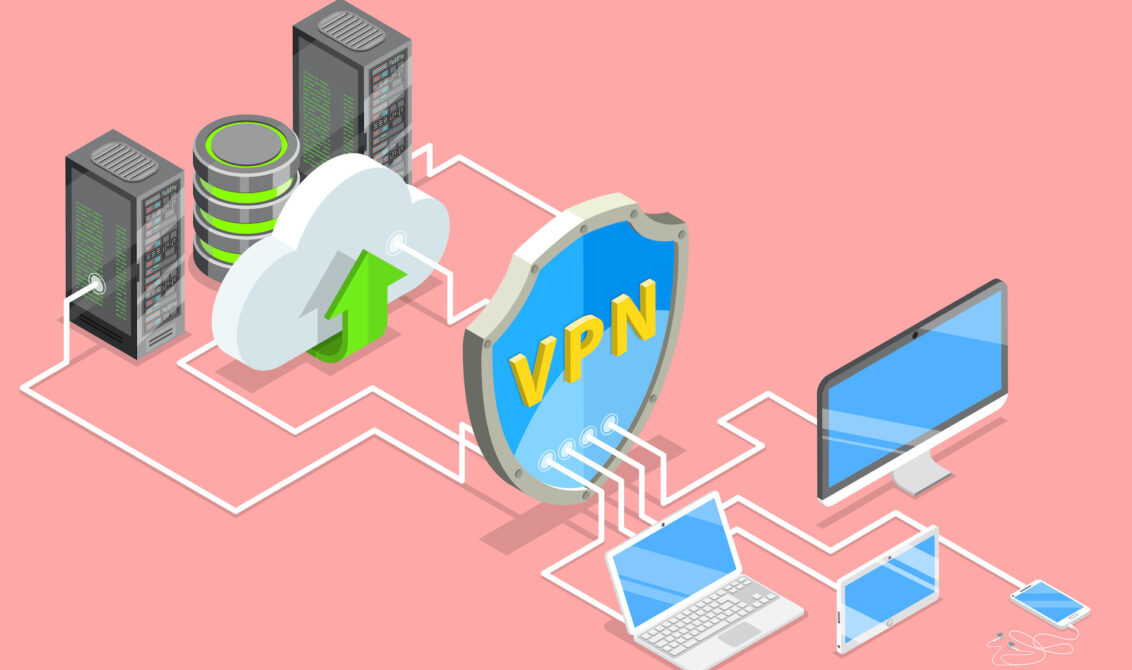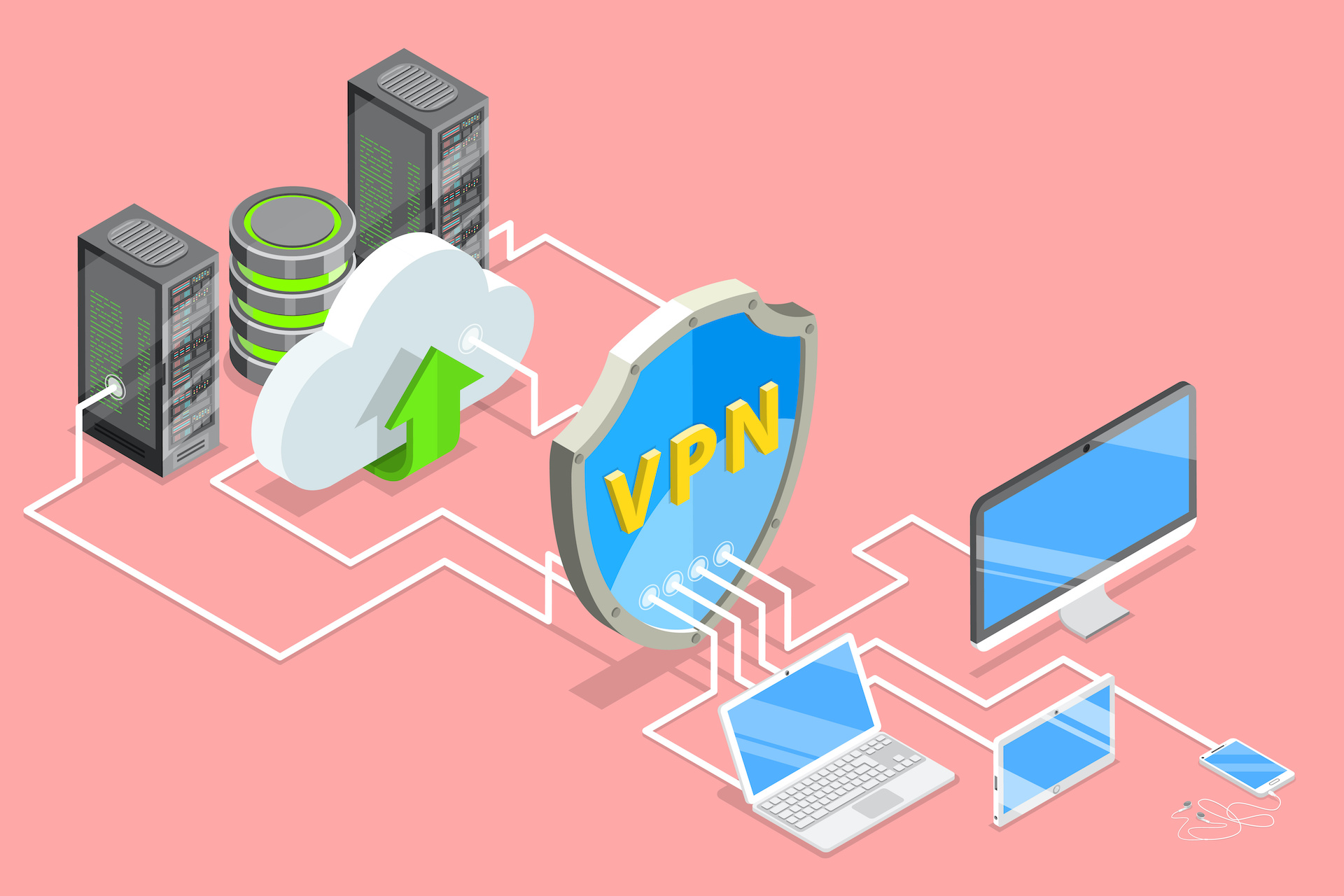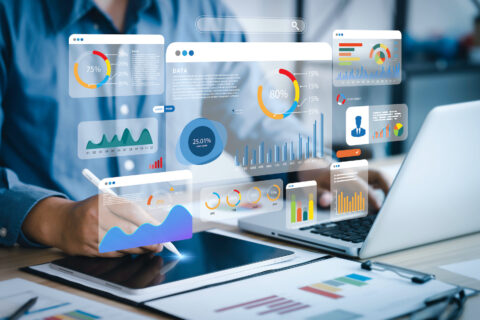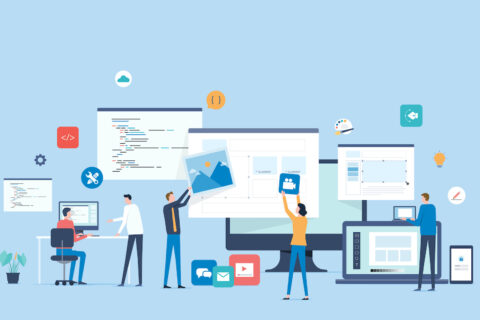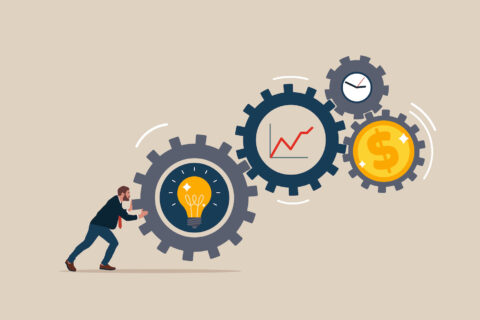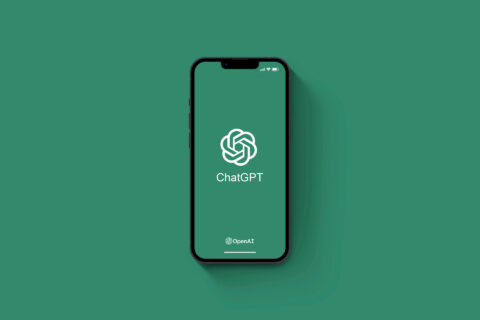In recent years, it’s seemingly impossible to ignore stories about hacks, breaches, or cybersecurity problems that plague the modern world. It looks as if privacy is a thing of the past. But it doesn’t have to be.
Thanks to privacy technology known as a VPN, alleviating privacy concerns and finding better online protection is a click away. Virtual Private Networks (i.e., VPNs) are the ideal tool to use when working or browsing online. If you’re interested in safeguarding your data, remaining private while working, and preventing others from tracking you, a VPN might be just for you.
Today, we’re taking a look at how a VPN can protect you and your business online. Keep reading to learn more.
1. VPNs protect your privacy
After all, the primary function of a VPN—it’s right there in the name—is to protect your privacy. In layman’s terms, a VPN just reroutes your connection. Imagine a tunnel through which your connection is routed. Instead of originating from your location, the website thinks you’re accessing it from a different location/IP address. That’s one of the reasons VPNs are so famous for accessing region-restricted content or general private browsing.
VPNs also use an encryption tunnel (an encrypted connection between the device you’re browsing from and the VPN’s server). The encryption makes it nearly impossible for your ISP or anyone else to see what you’re doing while online. VPNs reinforce your privacy, prevent your internet service provider from spying on your activities (typically for marketing), and keep your entire browsing history private.
When you combine a VPN with other online security measures, such as an antivirus and firewall, you can manufacture a very secure online environment on your devices.
2. VPNs are easy to use
Although it’s clear VPNs offer a valuable service, some users might be concerned about the learning curve involved in setting up and using one. Fortunately, VPNs are very easy to use for the most part. Setting up a VPN is remarkably easy. Some browsers, like Opera, include a built-in VPN. Enabling it is as simple as tweaking browser settings and defining parameters.
Many browser-based VPNs are proxy-based, which according to CNET, really only deal with making your privacy more anonymous than thoroughly securing it. Desktop and mobile VPNs are the whole package—they offer comprehensive protection and are more than a proxy service. Combined with how simple and intuitive they are, standalone VPNs are the perfect means for protecting your privacy online.
3. A VPN can protect multiple devices
Like most tech users today, you likely have multiple devices you use throughout the day. Laptops, desktops, Smart TVs, tablets, and smartphones all need some protection now and then. Imagine going from device to device while enjoying the same levels of privacy, web threat protection, and bandwidth without adjusting settings or changing providers? With a VPN Pro Subscription, you can do all that and more efficiently protect multiple devices for a low long-term cost.
4. VPNs offer Wi-Fi and data protection
Public wi-fi can sure be convenient sometimes. But did you know it’s highly unsecured, and thieves can steal your data in the blink of an eye through an unsecured network? Unsecured Wi-fi hotspots like the kind you’d find in hotels, malls, restaurants, and other public spaces, lack login credentials to access the network. That’s not a good thing.
Being open to anyone means hackers, man-in-the-middle attacks, and compromises can occur much more accessible than if the network were password-protected. Using an unsecured network is like having the opposite of a VPN. Everything—your location, your files, your history, your credentials—is exposed on these networks.
Using a VPN can help pump up your security on these networks by encrypting your connection. It’s also wise to turn off any sharing and remote access features. Don’t forget to use additional cybersecurity measures in addition to your VPN. Protecting your data while accessing a public network is crucial, so do your due diligence and protect yourself whenever you’re online in such places.
5. Powerful data encryption
Encryption is an integral part of a VPN’s overall function. As data moves through servers, encryption scrambles it so others can’t access, steal, or use it. You wouldn’t want someone to steal your passwords, access your files, or pilfer your credit card number (or other financial data), would you? Of course, you wouldn’t!
VPNs use an array of solid algorithms to encrypt data. These algorithms aren’t easy to crack—they’re incredibly complex and powerful—making encryption one of the most vital parts of using a VPN for your online work and play. Encryption just makes everything about using a VPN better, so be sure to find one that is powerful, reputable, and easy to use for the best results.
© YFS Magazine. All Rights Reserved. Copying prohibited. All material is protected by U.S. and international copyright laws. Unauthorized reproduction or distribution of this material is prohibited. Sharing of this material under Attribution-NonCommercial-NoDerivatives 4.0 International terms, listed here, is permitted.
